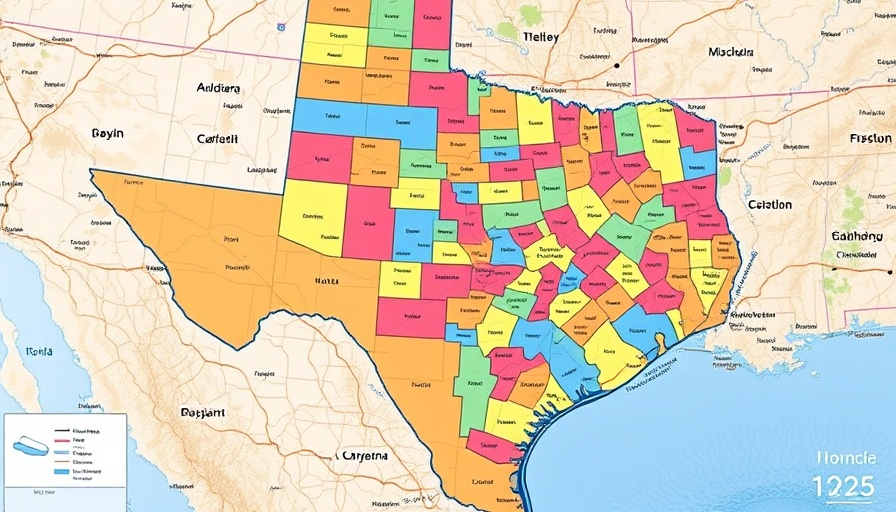
Governor Abbott's New Congressional Map: A Game Changer for Texas
In a highly anticipated move, Texas Governor Greg Abbott has signed into law a new congressional redistricting map that promises to reshape the political landscape of the Lone Star State. This new map comes amidst fierce opposition from Texas Democrats, who have vowed to challenge its legality in court. As one of the most populous and politically significant states, Texas is always under the national spotlight, making any changes to its electoral landscape noteworthy both locally and nationally.
Why Redistricting Matters: An Overview
Redistricting, the process of redrawing district boundaries, occurs every ten years following the Census. Its implications are profound—it can significantly influence the balance of power between political parties. The new map designed by Abbott's administration could solidify Republican dominance in several districts while shifting others in a way that may dilute Democratic representation.
Texas Democrats Rallying Against the New Map
The Democratic Party in Texas has expressed deep concern regarding the fairness of the new district lines. Accusations of gerrymandering—a practice where district boundaries are manipulated to favor one party over another—have emerged. Texas Democratic leaders argue that this map is engineered to undermine the voting power of communities of color, posing a direct challenge to the fairness of the electoral process. Their vow to fight this in court underscores their commitment to protecting voter rights and ensuring equitable representation.
A Closer Look at the Districts Affected
While it remains to be seen how the courts will respond to these challenges, specific districts are likely to face significant changes. Districts previously held by Democrats may now lean Republican due to strategic adjustments aimed at increasing the likelihood of GOP outcomes in upcoming elections. The effects of this redistricting could influence not just the forthcoming elections, but also set the stage for political battles for years to come.
The Broader Implications of Redistricting
This battle over redistricting is not just a Texas issue but resonates nationwide as states grapple with their own maps. As political landscapes shift, so too do demographics and priorities. The stakes are high: control of the House of Representatives often hinges on just a few districts across the country. As Texas Republicans push forward with this map, the outcome in courts could set precedents impacting how redistricting is approached in other states.
Public Sentiment: What Texans Think
Public opinion on this contentious issue remains divided. Many Texans, particularly in urban areas like Austin, are concerned about the perceived inequities in representation that will arise from the new map. Community discussions in informal settings and local forums indicate a strong desire for transparency and input in how these maps are drawn—reflecting a broader trend towards civic engagement in the political process. The involvement of local organizations advocating for fair representation is significant, revealing a robust network of voices ready to challenge any perceived injustice.
The Future of Texas Politics: What Lies Ahead?
The political environment in Texas is ever-evolving. As challenges to the new congressional map mount, one must consider the potential ramifications on voter turnout and party dynamics. Changes in district boundaries can inspire mobilization among those feeling disenfranchised, sparking movements aimed at safeguarding voting rights. The next few months will be critical for both parties as they prepare for upcoming elections and navigate the implications of these redistricting decisions.
As Texas continues to grapple with these changes, citizens are encouraged to stay informed about how emerging developments in politics can affect their local communities. Engaging in discussions around local news and national implications is essential as we move toward the next electoral cycle.
What can you do? Stay engaged by following local developments and participating in discussions about voter rights and representation. Engage with your community and advocate for transparency in all electoral processes, helping to foster an environment where every voice is heard.
 Add Element
Add Element  Add Row
Add Row 



Write A Comment